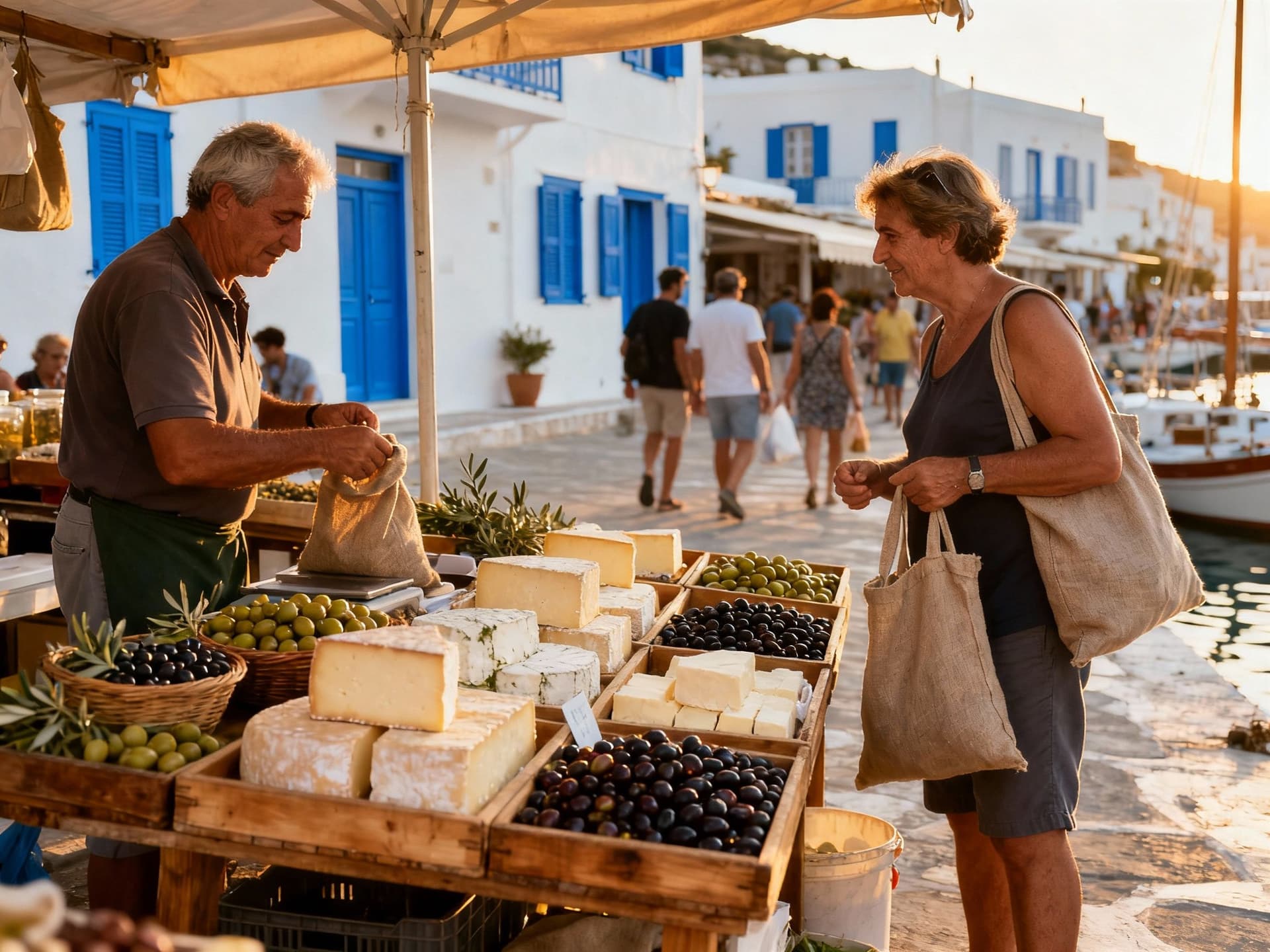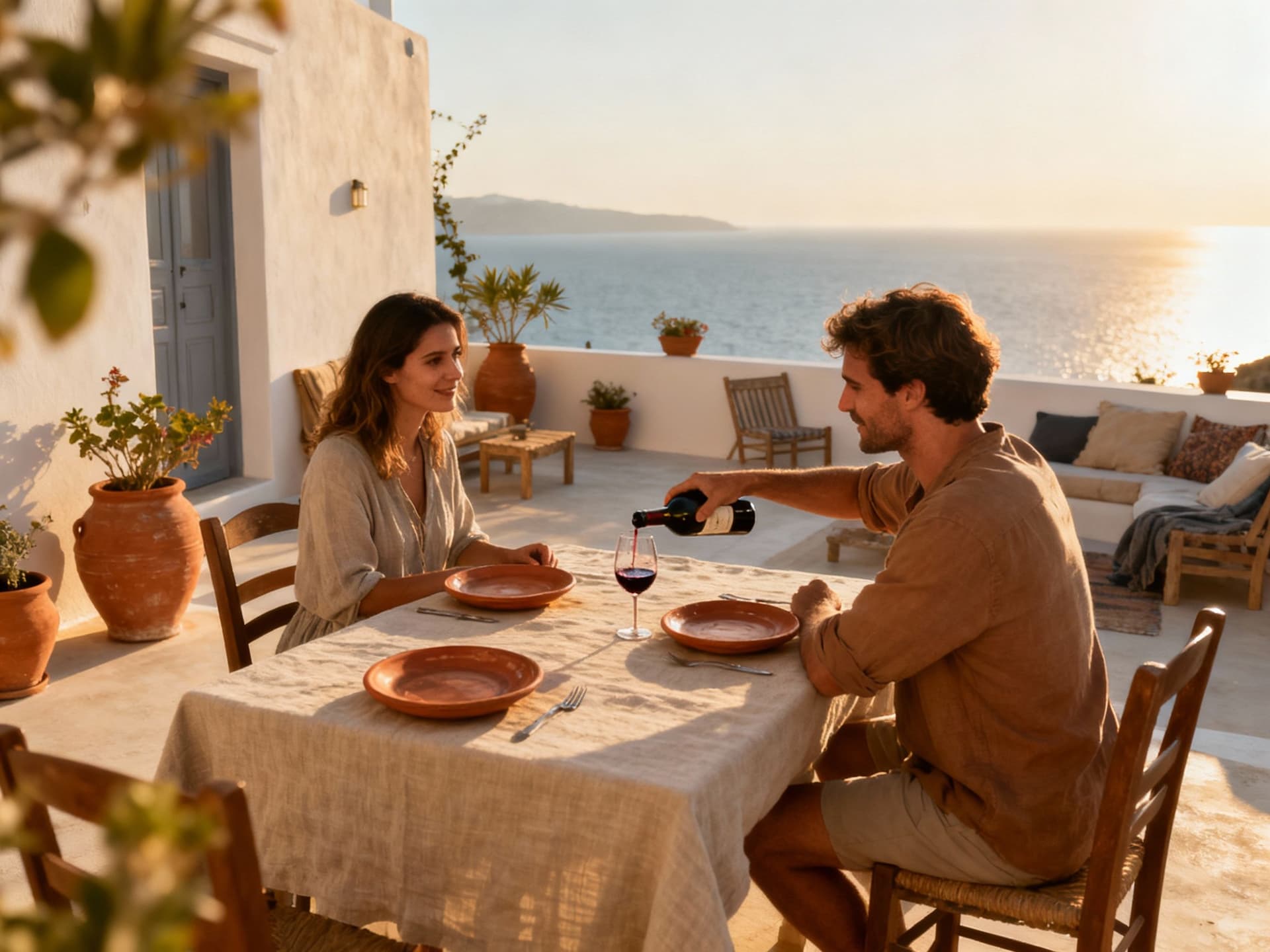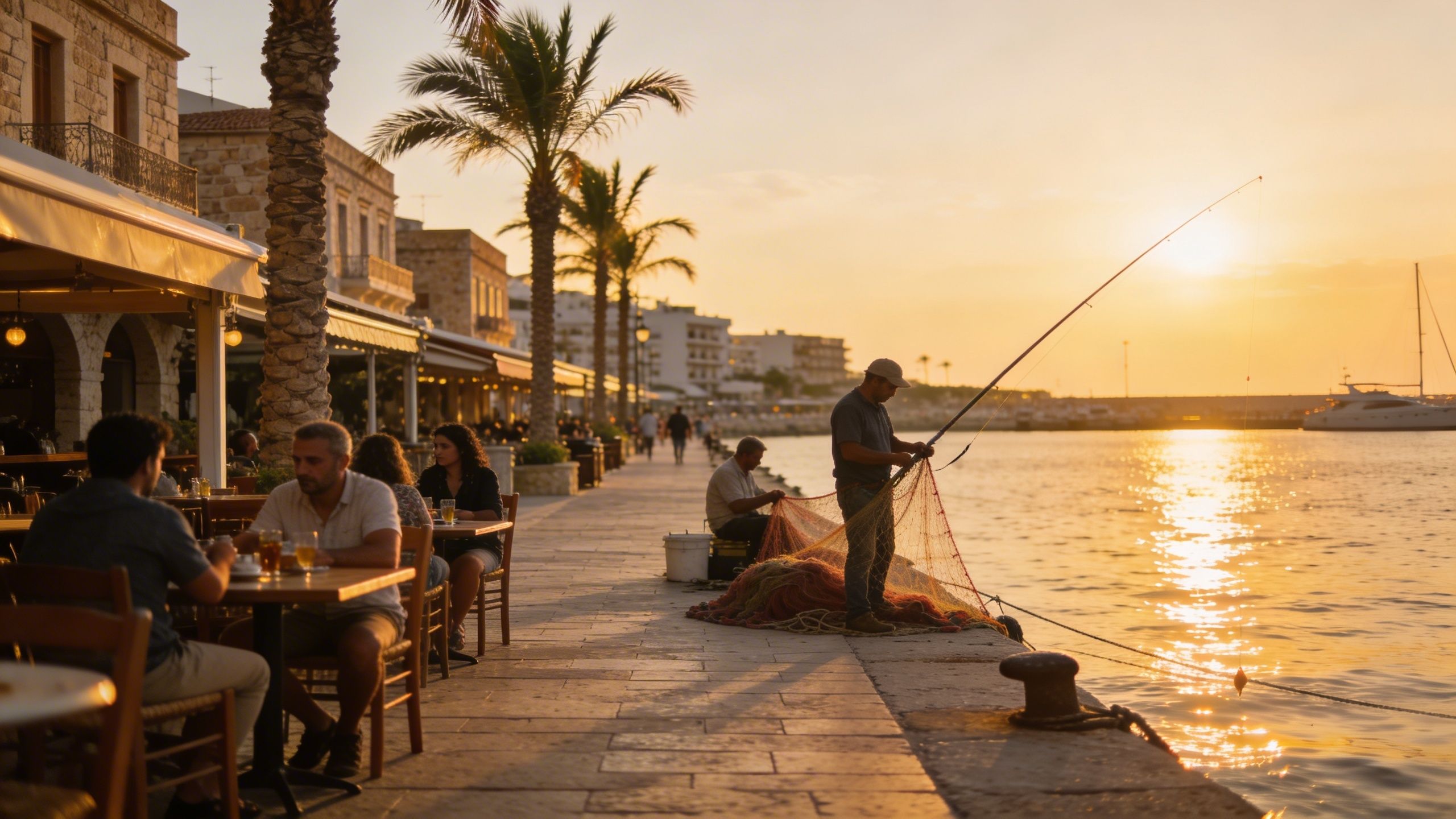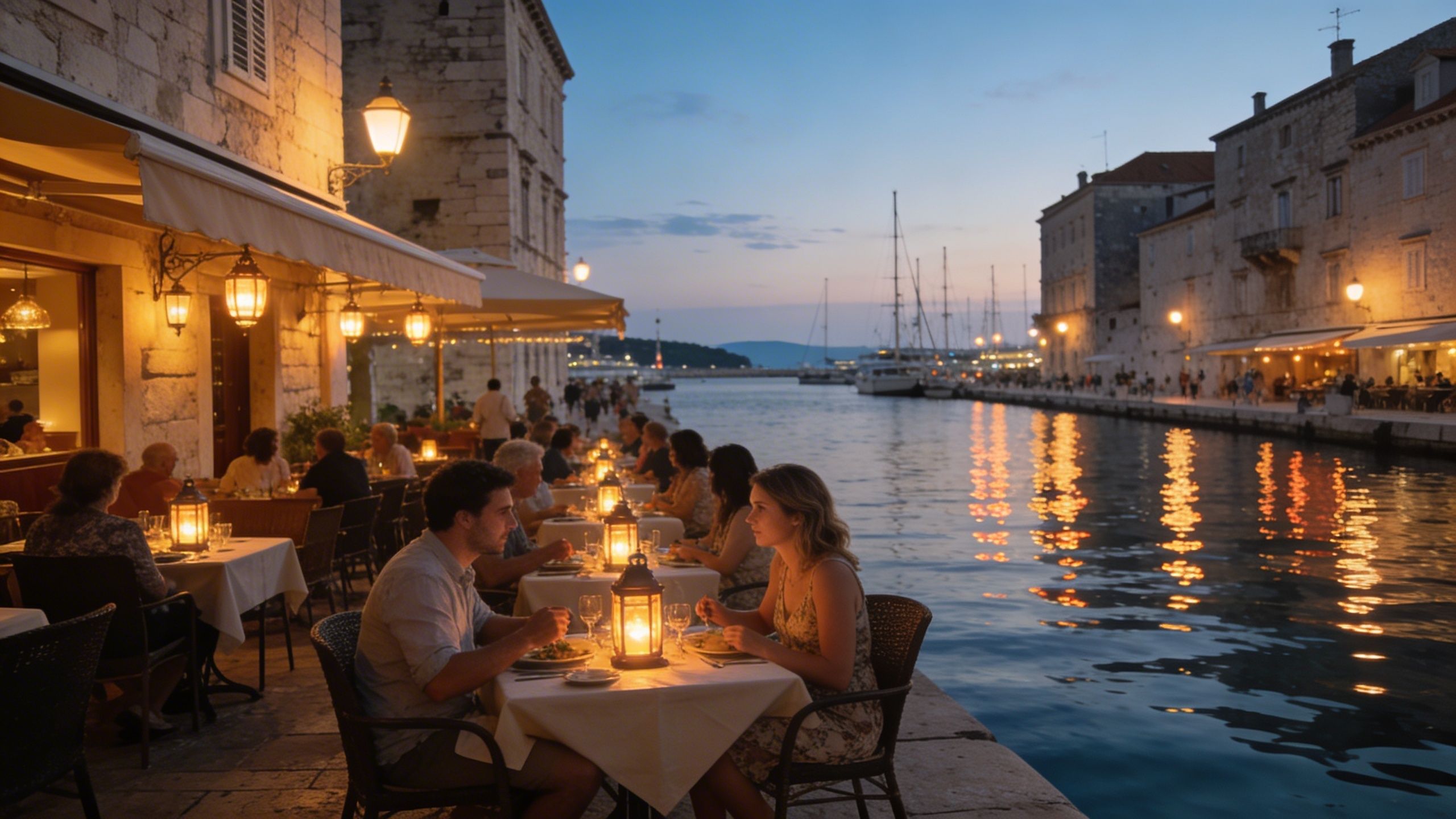Tax Truths That Change Where You Buy in Greece
How Greece’s transfer tax, ENFIA and residency rules quietly reshape where buying makes sense — practical steps to align lifestyle with tax reality.
Imagine waking to the clink of espresso cups on an Athens terrace, or to the hush of cicadas above a limestone courtyard on Naxos. Life in Greece compresses seasons and social life into luminous intervals: long market mornings, late tavern dinners, and neighbourhood rhythms that reward patience. For prospective buyers, that lived reality is inseparable from paperwork — and from a handful of tax rules that quietly reframe where value actually sits. Understanding those rules changes more than budgets; it changes where you choose to live.
Living the Greek Life: places, rituals and small luxuries

Stroll through Plaka at dawn and you meet the compact pleasures that make Greek addresses desirable: narrow stone alleys, cafe owners who remember your order, and generations of merchants. In Athens, Koukaki and Anafiotika reward walkers; Kifisia offers a quieter, green alternative with villas and plane‑lined avenues. On the islands, Paraga beach in Mykonos or the fishing quay of Naoussa (Paros) shape daily life around sea and light, not square footage. These textures matter — they determine maintenance needs, insurance exposure and, crucially, annual taxes.
Neighbourhood pulse: Athens, Cyclades and the quieter east
Kifisia’s late‑19th century villas speak to collectors; the Cyclades trade privacy for seasonal intensity. In Crete, the small towns around Chania offer a year‑round rhythm with markets and artisan workshops, while the Dodecanese feel quieter and more intimate. When you prioritise a neighbourhood, you are also choosing exposure to seasonal tourists, municipal surcharges and the practicalities of upkeep — each of which feeds into tax calculations and yield forecasts.
The table: food, markets and the social cost of convenience
Weekends in Greece are led by market life: fish stalls in Piraeus, olive oil producers in rural Peloponnese and pastry bakers along island main streets. These habits shape property choices — a kitchen with storage for preserves, a courtyard you use year‑round, or proximity to a market that allows you to own less supermarket space. They also influence taxable utilities and municipal credits: the daily life you choose subtly alters operating costs and, by extension, the effective tax burden of any house.
Neighbourhood and lifestyle highlights: Koukaki (walkable Athens charm), Kifisia (plane‑lined avenues and villas), Plaka (historic terraces), Chania (markets and craft culture), Naoussa, Paros (quiet island harbour life), Lesser‑known Tinos villages (artisan communities).
Making the move: how tax shapes where you buy

You can fall for a view, but the transfer tax and ENFIA readings will tell you whether that view is affordable long term. Greece applies a real estate transfer tax — currently 3% of the taxable value (with municipal levies bringing the effective amount slightly higher) — charged at purchase and administered through AADE. For many older properties the transfer tax is the decisive one‑off expense; for new builds VAT may apply instead. Knowing which regime governs a property can change the net price by tens of thousands of euros.
Annual ownership costs: ENFIA and what it means
ENFIA is a recurring charge that all property owners should model into their holding costs. Its calculation is granular — influenced by floor area, vintage, location and objective value — and recent AADE guidance confirms the timing and instalment structure of payments. Owners in high-demand islands and central Athens should expect higher per‑square‑metre rates; insurers offering earthquake cover can, in many instances, generate discounts that materially reduce the annual bill. Plan ENFIA into your cashflow, not as a marginal line item.
If residency matters, recent reforms have re‑zoned the Golden Visa thresholds: sought‑after areas such as much of Attica and the larger Cyclades now sit in higher investment bands. That shift reshapes demand and therefore tax‑adjusted value: properties once attractive for a residency play may carry a different yield profile under the new thresholds. If you are buying with residency or rental income in mind, time and location — not just architecture — determine the tax and regulatory outcome.
Steps to estimate true purchase cost: 1) Confirm whether the property is subject to transfer tax (3%) or VAT (new builds). 2) Obtain an objective value (for transfer tax base) from your lawyer. 3) Add notary, registration and legal fees (typically 1–2% plus registry levies). 4) Model ENFIA and municipal TAP into annual carrying costs. 5) If rental is planned, apply progressive income tax rates to expected net rent and factor in possible withholding or treaty relief.
Insider knowledge: what expats wish they’d known
Expat experience converges around a few practical truths: the objective value can diverge from market price; seasonal patterns skew rental income; and small municipal rules — from waste collection levies to registration delays — materially affect cashflow. Owners who treat Greece as a lived place rather than a short‑term asset tend to make better decisions: they invest in local relationships, build a reliable maintenance team and accept that some months are quiet. Those habits lower hidden costs and, over time, the effective tax rate on your ownership.
Language, bureaucracy and local partners
You will sign in Greek before a notary; translations and a trusted lawyer are non‑negotiable. Local agencies and bilingual tax advisors smooth land registry issues and the new myPROPERTY digital filings, which reduce delays if handled correctly. A discreet local accountant will save you far more than their fee by aligning payment timings, claiming applicable ENFIA discounts and advising on bilateral treaties that mitigate double taxation.
Longer view: stewardship, restoration and inheritance
If you plan generational ownership, consider how restoration choices affect objective values and future ENFIA. Restoring an old pallazo or traditional Cycladic house increases taxable value but also preserves provenance — a tradeoff many buyers accept for cultural and long‑term capital benefits. Estate planning is similarly practical: inheritance tax regimes and family exemptions make structured transfers preferable to ad hoc dispositions. Thoughtful stewardship preserves both lifestyle and tax efficiency.
Quick red flags to check with your lawyer: confirm VAT vs transfer‑tax status; validate objective (tax) value; check for outstanding municipal charges; review building permits and occupancy certificate (akt tamieio); verify whether properties are in a Golden Visa high‑threshold zone.
Greece is a place you learn slowly: its best properties reward time and attention. If the lifestyle draws you — morning markets, courtyard dinners, and a pace that privileges quality — then arrange your purchase so taxes and local rules amplify, not erode, that life. Start by engaging a bilingual lawyer and a local accountant, ask your agency for recent ENFIA bills and objective values, and request clear answers on VAT vs transfer tax. Small preparations yield a purchase that feels right in both the heart and the ledger.
Former Copenhagen architect who relocated to Provence, offering relocation services, market analysis, and a curator’s eye for authentic regional design.


